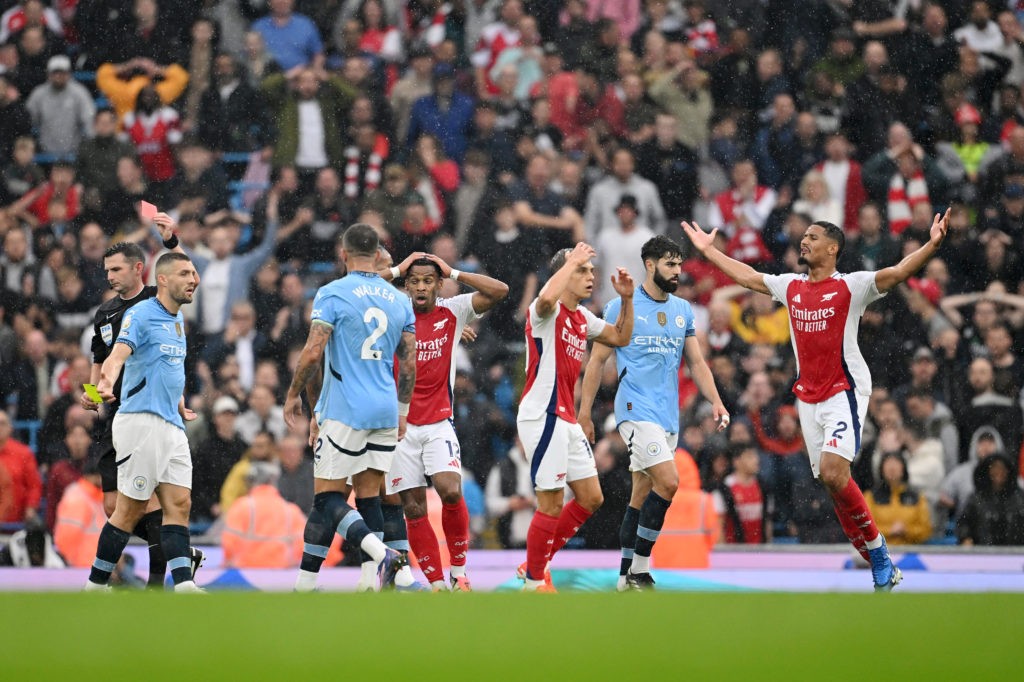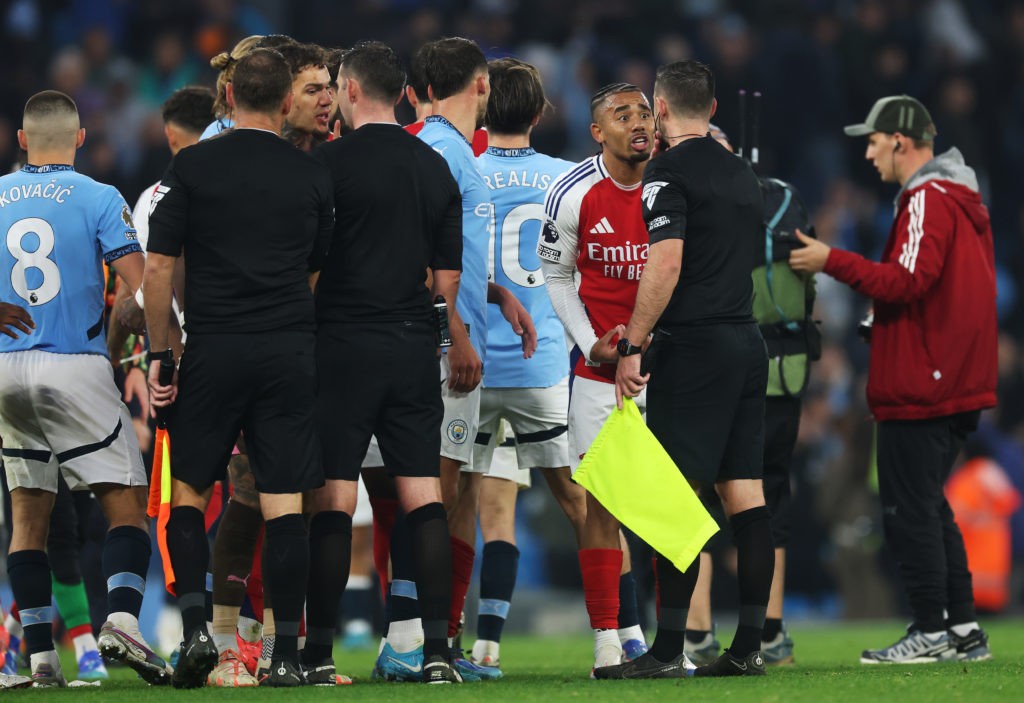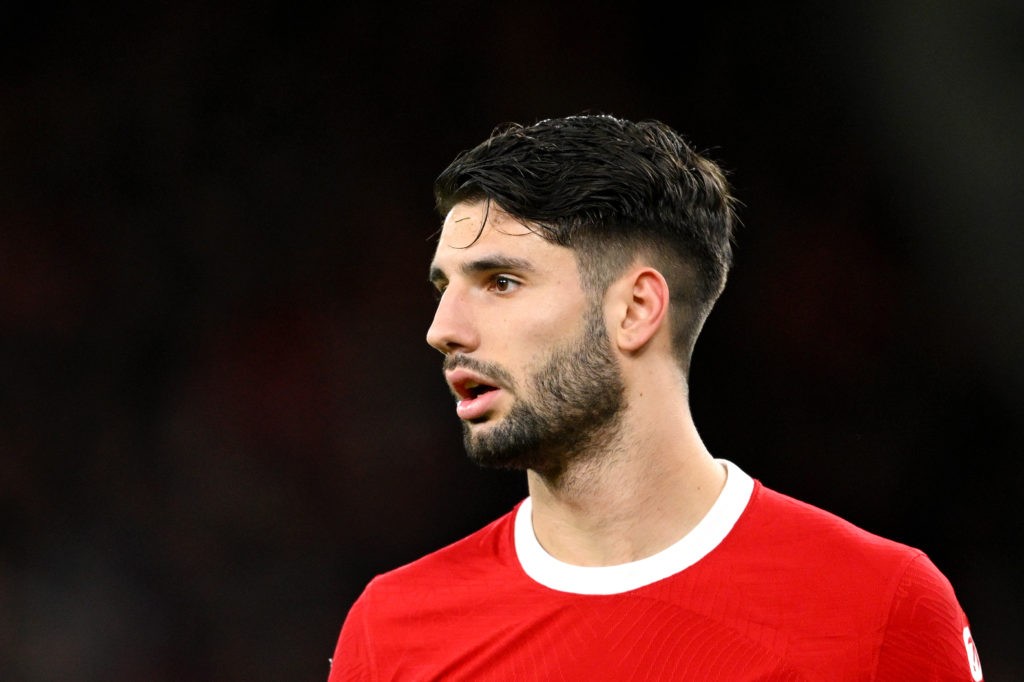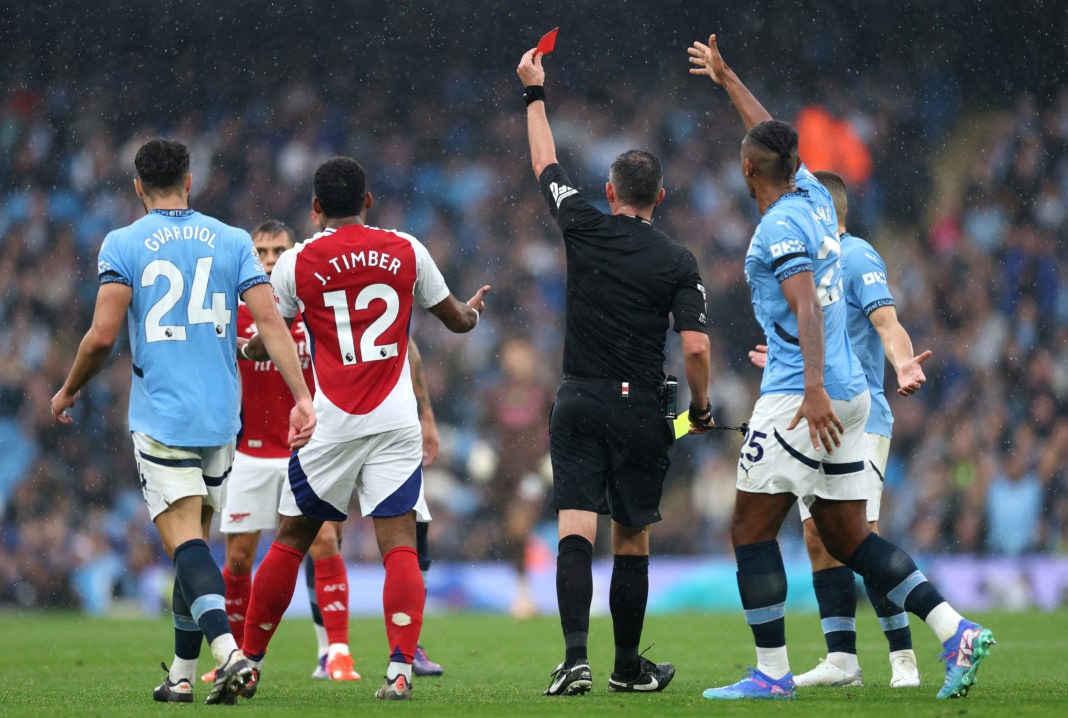Michael Oliver’s inconsistency has been highlighted by how he dealt with almost identical instances of delaying the restart within the space of just eight days.

Some pundits have claimed that Leandro Trossard could have no complaints after receiving a second yellow card against Manchester City on Sunday, blaming the forward for a thoughtless action.
Trossard had committed a foul, but glancing up to see Gabriel Martinelli starting to make a run, he lifted the ball over a City player in the direction of the Brazilian’s path.
The whistle had already gone, and Michael Oliver adjudged that Trossard was delaying the restart, showing him a second yellow card. Arsenal had to play the remainder of the match with 10 men.

Yet Oliver had taken a much more lenient approach a week earlier, when Dominik Szoboszlai committed the same offence.
Szoboszlai was also on a yellow card when he committed a foul against a Nottingham Forest player, before launching the ball into the penalty area. He avoided a yellow card.
This happened just last week.
We were told, even though he was already on a yellow here, kicking the ball away wasn’t a bookable offence because he wasn’t delaying a restart.
— North Bank Highbury (@NorthBankerAFC) September 22, 2024
Looking at both incidents frame-by-frame, there were 1.07 seconds between the whistle hitting Oliver’s mouth and Trossard making contact with the ball. By contrast, there were 1.13 seconds between Oliver’s whistle and Szoboszlai’s kick.
So Szoboszlai had slightly more time to react, yet Oliver decided not to punish him, only showing a yellow to the Arsenal player.

The additional frustration is that the potential red card for Szoboszlai would have had a very minor impact on the contest, with Liverpool already losing deep into injury time.
Arsenal were winning, with over a half of football still to play. Oliver’s decision completely changed the game.
The referee’s job isn’t to start applying rules when it will cause maximum disruption to a match. In fact, it’s regularly suggested by Howard Webb that they’re trying to do the opposite, allowing a game to flow and intervening when only when necessary.
If Oliver had blown the half-time whistle instead of dismissing Trossard, no one would have complained. Instead, he showed the red card for Trossard’s ‘delay’ and then ended the half within four seconds of the restart.

